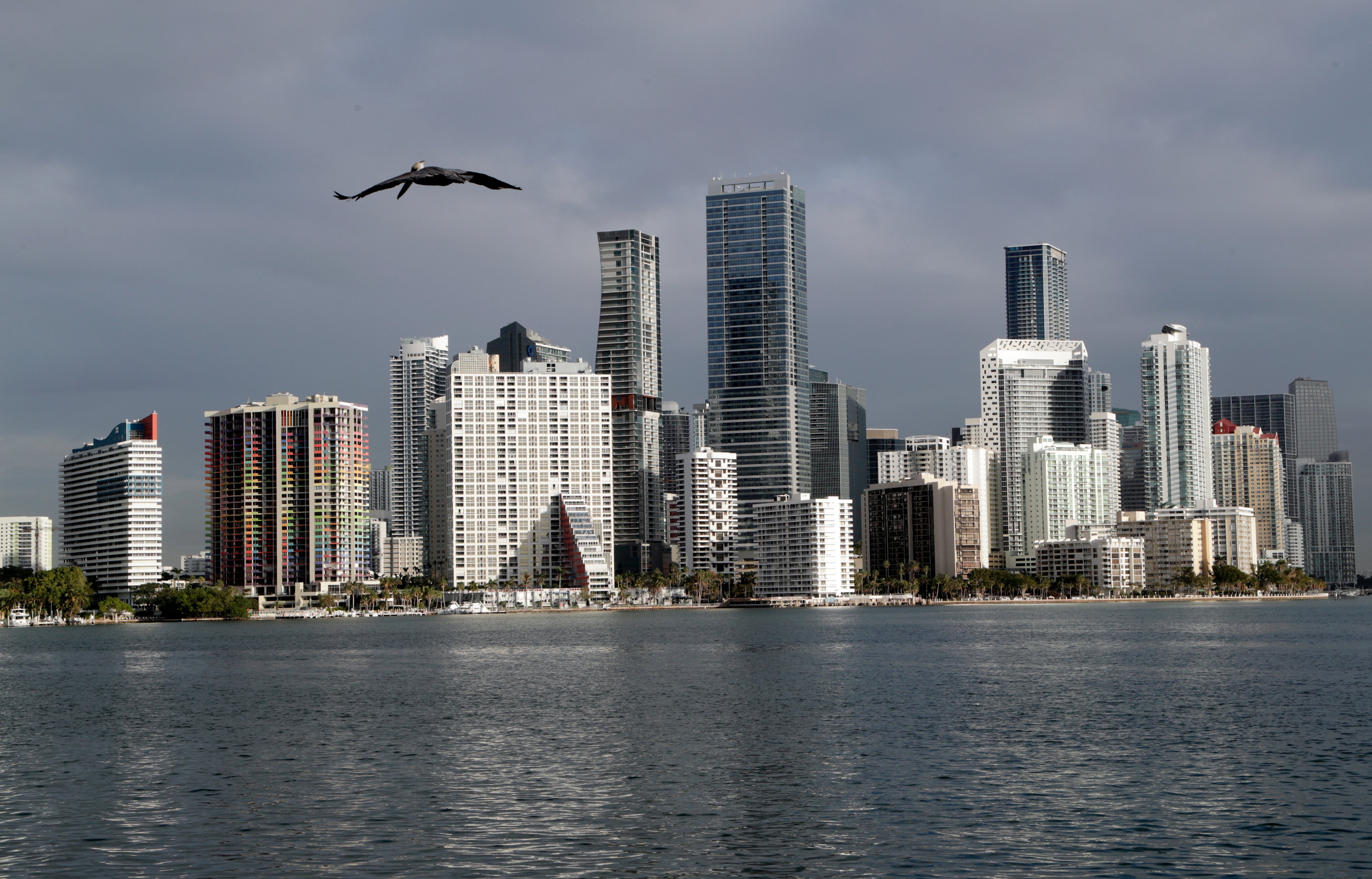The fine art of skiplagging
Simon Calder answers your questions on liquids in hand luggage, travel to idyllic Kerala (and arguably less idyllic Eastern Europe) and buying a ticket for a destination you’re not actually going to...


Q Have you ever “skiplagged”? If so, where and when, and did it work out?
Name supplied
A “Skiplagging”, also known as “hidden-city flying” and “throwaway ticketing”, is a technique to exploit a common anomaly of air travel: that a plane ticket from A via B to C is often cheaper than one from A to B.
My current trip is a good example. I paid £735 return for a ticket to Kansas City on Virgin Atlantic and its partner Delta via Atlanta. But were I to be going only as far as Atlanta, the fare would typically be £200 more. This bizarre state of affairs arises because of two issues: passengers are prepared to pay a premium for a non-stop flight between two big cities, while on less-popular connecting routings, airlines must cut prices to attract passengers.
A skiplagging traveller buys a cheap ticket pretending they want to go from A via B to C. But they only really want to go as far as B. Instead of changing planes at the connecting airport, they deliberately “no-show” for the onward flight. They take cabin baggage only because checked luggage would be transferred to the final destination. But airlines are furious with skiplaggers. Not only do they lose revenue – they also find themselves flying with empty seats.
I have used the technique just once. I wanted a direct one-way flight from Orlando in Florida to Manchester. It was a low-season flight with loads of empty seats. The fare was £800 and showed no sign of easing. But by pretending I wanted to go to Dublin via Manchester, the fare came down to just £300. The difference is so extreme, I was prepared to do something that I knew breached my contract with the airline.
By way of justification: I certainly would not have paid £800 and therefore would have travelled with a different airline on an indirect flight. So the carrier gained at least something from my journey. At Manchester, I simply left the airport and ignored the various texts about my onward flight to Dublin. The airline could have pursued me to reclaim the fare difference but did not do so. I was not a member of the frequent flyer scheme; other passengers have found they have had their accounts closed after skiplagging.
While in confession mode, I once remained on a plane beyond the stop I was booked to fly to. It was a French airline flying from Paris on a two-hop trip to Cuba. My ticket said Havana but I stayed on the plane to Varadero.

Q Having just passed through Manchester airport, the rules for liquids in hand luggage are back where they were years ago: one clear plastic bag, maximum one litre, no more than 100ml per item. This is a significant disadvantage for passengers not wanting to check in luggage. Are any improvements planned or have the authorities just given up with new technology?
David N
A I share your frustration. The rules limiting the size of liquids, aerosols and gels, were introduced hastily worldwide in 2006 as “a temporary measure” to protect against explosives. Despite repeated promises, they remain in place. Technology has certainly caught up: modern scanners now use computed tomography (CT) – the same as medical scanners – to analyse the molecular structure of the contents of a passenger’s bag. The machines can detect potential threats and present security officers with a three-dimensional image of the contents. Travellers have a much easier experience: they can leave liquids in their cabin bags, and the whole airport process feels much smoother and less stressful.
In 2019 the then prime minister Boris Johnson ordered major UK airports to install the new kit by 2022, allowing larger quantities and eliminating the need to have liquids separately scanned. A couple of PMs later, Rishi Sunak’s government then extended that deadline to 1 June 2024. The big four UK hubs – Heathrow, Gatwick and Stansted as well as Manchester – were granted an extension.
Manchester Airports Group, which owns Stansted and East Midlands as well as Manchester, has the new scanners “in place on a large number of our security lanes” – but the programme will not be completed until 2025. And even then it is not clear whether travellers will benefit.
During the summer, progress in aviation security actually went into reverse, with the Department for Transport ordering airports with the new equipment to restore the old 100ml limit. A DfT spokesperson said: “This temporary move is to enable further improvements to be made to the new checkpoint systems.” I understand it is largely a software problem, with harmless liquids such as sunscreen misidentified as high-threat substances. The potential converse is that dangerous liquids could be passed as safe. For now, then, it is as you were. I hope progress will be made by the 20th anniversary, in a couple of years’ time, of this “temporary” inconvenience.

Q A friend lives in Minsk and finds it difficult to travel to the UK. How easy would it be for me to travel there instead? I know that flights to Belarus are banned. Any other options? Would they let me in, and would I have any problems coming back?
Name supplied
A How times change. For a time in 2020, the only destination to which you could fly from London Gatwick airport was Minsk. The national airline, Belavia, maintained a daily departure to the Belarusian capital with onward links that mostly carried people desperate to reach other destinations at the height of the Covid pandemic; a range of connections was available.
Since the Russian invasion of Ukraine, in which Belarus is complicit, the carrier has been banned. Outrages such as the forced diversion of a Ryanair flight from Athens to Vilnius in 2021, so the authorities could arrest a Belarusian dissident who was on board, have not bolstered confidence in flying there.
In addition, the Foreign Office warns against all travel to the nation, saying: “You face a significant risk of arrest if you have at any time engaged in any activity now considered illegal by the Belarusian regime. There is also a low risk that direct conflict linked to the war in Ukraine may spread to Belarus.” The effect of the FCDO warning is to nullify a standard travel insurance policy.
Having said all of that: Minsk remains easily accessible to British passport holders. A coach company called Ecolines has two direct buses a day between Warsaw and Minsk for what seems to be a flat fare of €30. The Polish capital is easy to reach from airports across the UK. If the 11-hour bus journey between Warsaw and Minsk is too daunting, buses from Vilnius to the Belarusian capital are quicker.
The land border crossing is likely to take an age at either frontier. However, Belarus has eased red tape for British visitors. Until the end of 2024, no visa is needed; this courtesy may well be extended.
Foreign Office advice has no legal force, so you will face no consequences when you return home – except, possibly, disapproval from family, friends or colleagues for visiting what is widely regarded as a pariah state.

Q We’re lucky enough to be leaving next week for a three-week trip around Kerala over Christmas, culminating in a New Year’s Eve wedding reception. All our accommodation is pre-booked, although some will have to be paid locally. What’s our best bet for currency? We use Revolut when paying by card, but what about cash? Should we take dollars or pounds in notes to change into rupees, or should we use our Revolut card to withdraw local currency from ATMs?
Andrzej K
A Your trip sounds fabulous: this beautiful southwestern state has 367 miles of coastline as well as tranquil backwaters and stirring scenery to explore. I hope it will involve at least a few days in the fine city of Kochi (Cochin) – one of my all-time Indian highlights. December and January are excellent months to avoid excessive heat and rainfall in Kerala, and you can look forward to a magnificent 2024 finale.
I was last in Kerala five years ago. On that occasion I used credit cards a fair amount at tourist hotels and restaurants, and changed clean US dollars for Indian rupees for purchases elsewhere; sterling and euros in good condition are also acceptable.
To get an up-to-date picture, though, I shared your question with Tony Wheeler, co-founder of Lonely Planet, who was in India very recently. He found credit cards were accepted by many merchants. When paying by card, Revolut, with its excellent exchange rates, is a good first option. But from experience elsewhere in the world I know that it is always worth having a couple of back-ups; I use a fee-free Halifax Clarity Mastercard, with a First Direct debit card (also without foreign transaction fees) as a last resort. Tony says he could not easily find opportunities to exchange foreign currency. “I was surprised of how short they were of money-changers,” Tony says. Instead, he used ATMs to withdraw cash – and even they were in short supply.
Finally, many people like to obtain some of the currency for their destination in advance. However, the rules set by the Reserve Bank of India for the import of rupees are complex, and I am not aware of any major foreign exchange provider that offers the currency in the UK.
Email your questions to s@hols.tv or tweet @SimonCalder
Join our commenting forum
Join thought-provoking conversations, follow other Independent readers and see their replies
Comments
Bookmark popover
Removed from bookmarks